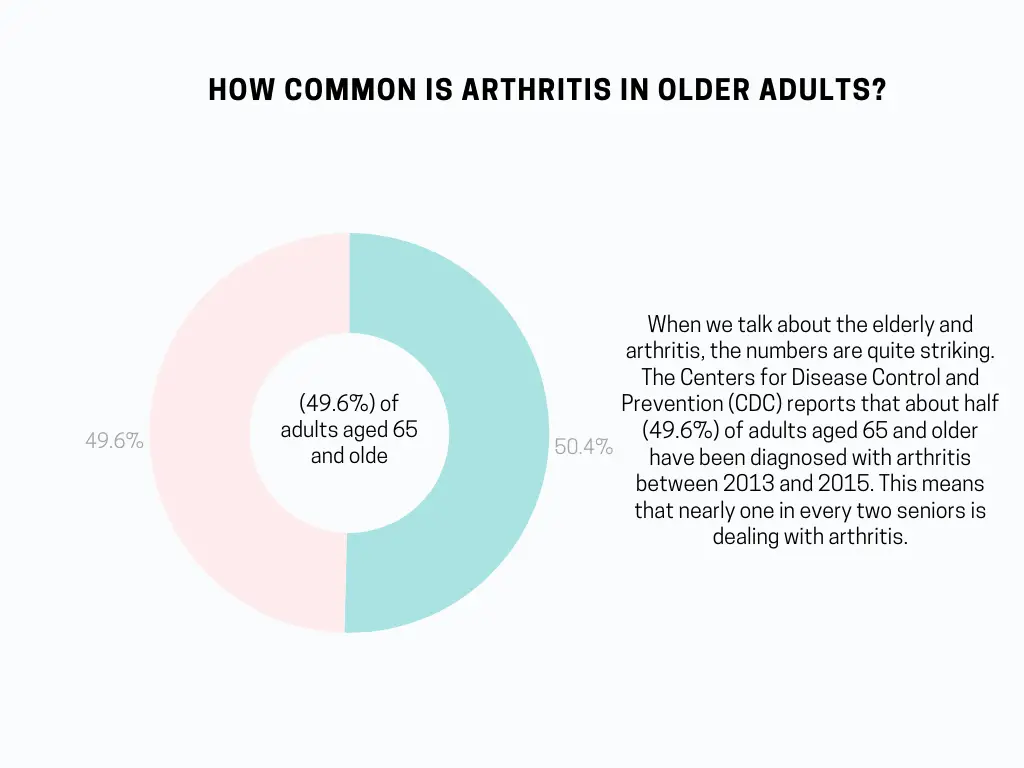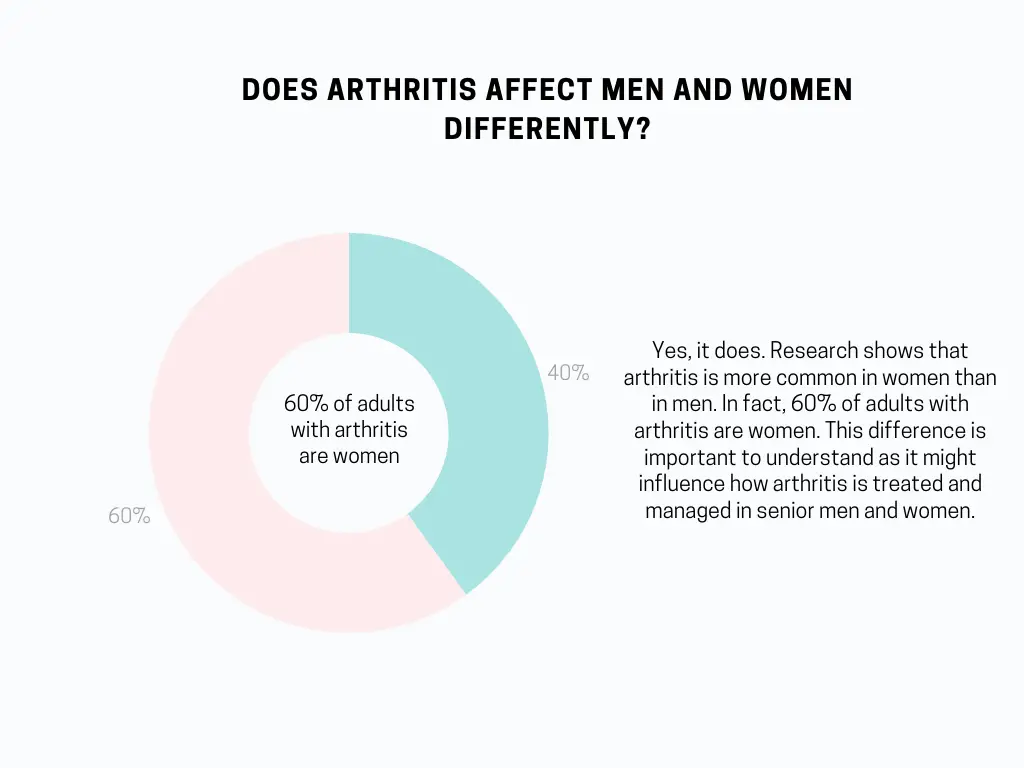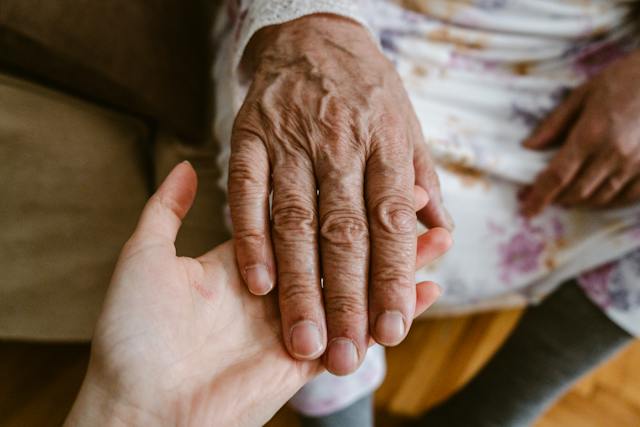Arthritis is more than just a medical condition; it’s a significant challenge faced by many senior citizens. Understanding how widespread arthritis is among the elderly and what this means for them is crucial. Let’s break down the numbers and their implications in a straightforward way.
How Common is Arthritis in Older Adults?
When we talk about the elderly and arthritis, the numbers are quite striking. The Centers for Disease Control and Prevention (CDC) reports that about half (49.6%) of adults aged 65 and older have been diagnosed with arthritis between 2013 and 2015. This means that nearly one in every two seniors is dealing with arthritis.
These statistics aren’t just figures; they represent real people facing daily challenges due to arthritis.

What Does This Mean for Seniors?
Arthritis isn’t just about joint pain. It affects seniors’ overall health and lifestyle. For instance, those with arthritis are more likely to have heart disease, diabetes, and be overweight. This makes managing their health more complicated.
One of the biggest impacts of arthritis is on seniors’ ability to move around. It can reduce their physical activity, which can lead to other health problems and a lower quality of life.
Does Arthritis Affect Men and Women Differently?

Yes, it does. Research shows that arthritis is more common in women than in men. In fact, 60% of adults with arthritis are women. This difference is important to understand as it might influence how arthritis is treated and managed in senior men and women.
Does Where You Live Matter?
Interestingly, arthritis affects seniors differently depending on where they live. The CDC has found that arthritis is more common in certain areas, like the Appalachian and Mississippi Delta regions. This means that public health efforts need to be tailored to meet the needs of seniors in different parts of the country.
What Can Be Done About This?
Dealing with arthritis in the senior population requires a few key steps:
- Raising Awareness and Education: It’s important to spread the word about arthritis, its effects, and how to manage it. Educating both seniors and their caregivers can lead to better health outcomes.
- Improving Access to Care: Seniors need to be able to get the medical care and support they need for arthritis. This includes making healthcare more affordable and accessible.
- Encouraging a Healthy Lifestyle: Staying active and healthy can help manage arthritis symptoms. Exercise programs designed for seniors can be really beneficial.
- Continuing Research: More research into arthritis treatments and management can bring new solutions and relief to those affected.
Conclusion
In summary, the numbers tell us that arthritis is a major issue for many seniors. By understanding and addressing its impacts, we can help improve their health and quality of life. It’s not just a health concern; it’s about ensuring that our elderly population can enjoy their later years to the fullest.

Morgan Elfman is a compassionate writer, dedicated caregiver, and passionate advocate for senior well-being. Born and raised with a deep sense of empathy and a natural inclination towards service, Morgan has devoted her life to making a positive impact on the lives of seniors.
As a writer for www.choiceseniorlife.com, Morgan utilizes his skills to create insightful and informative content that addresses the unique needs and challenges faced by seniors and their families. Her articles not only provide valuable information on health, lifestyle, and care options but also strive to inspire and empower seniors to lead fulfilling lives.
